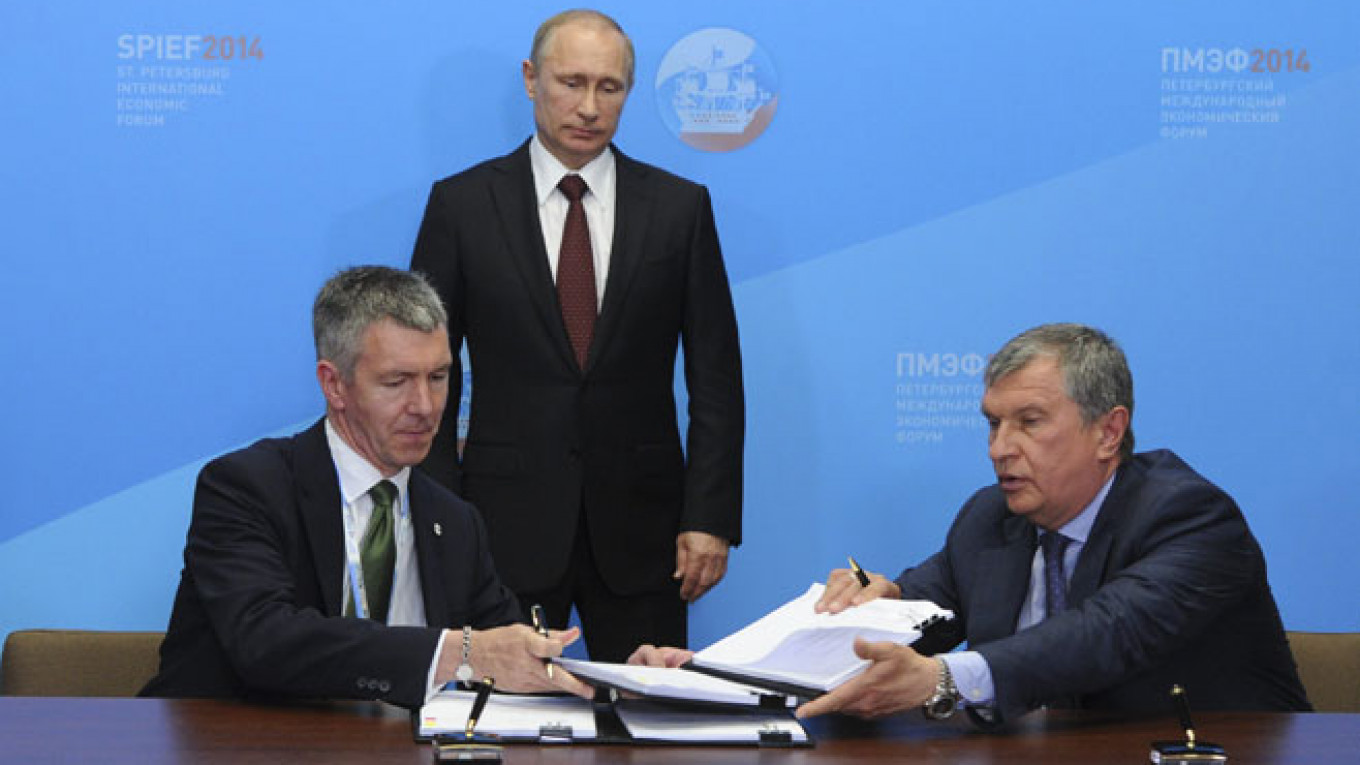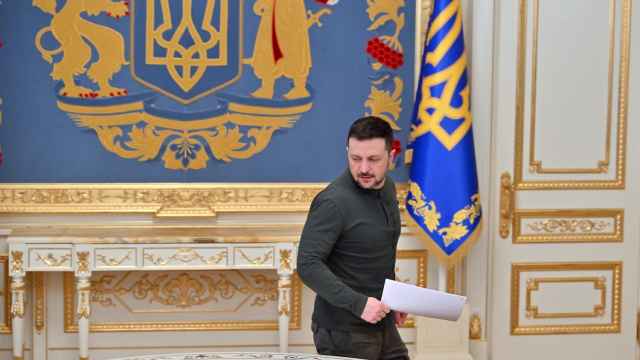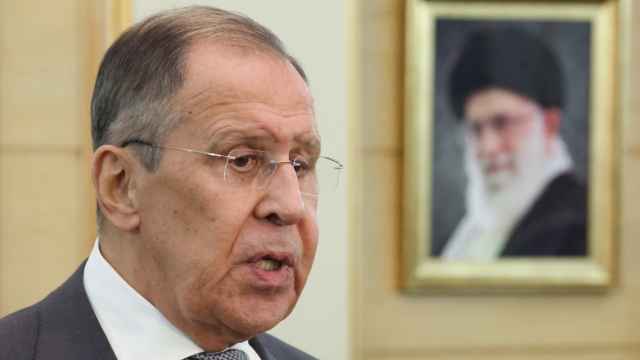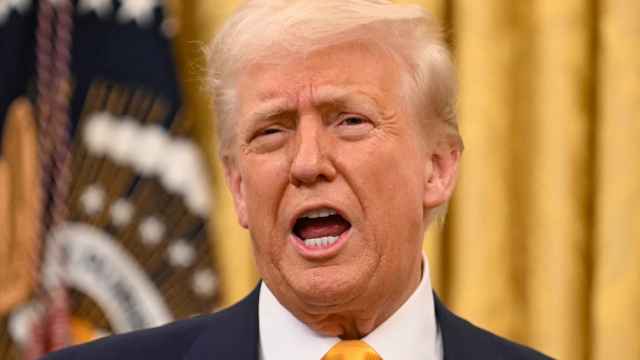ST. PETERSBURG — Rosneft and BP signed an agreement Saturday to jointly explore for hard-to-recover oil in Russia, the first major deal for the state-run Russian oil company since the West imposed sanctions over Ukraine in March.
Rosneft chief executive Igor Sechin, a close ally of President Vladimir Putin, has been targeted by U.S. sanctions along with some other members of Putin's so-called inner circle following Russia's annexation of Crimea from Ukraine in March.
Western energy bosses saved the St. Petersburg International Economic forum from a complete failure by effectively standing by Russia as heads of top banks and many other firms did not show up for fear of reprisals over the sanctions.
"Our country has a goal not only to sustain and improve positions of one of the leading energy suppliers but to become one of the leaders of starting transformation of the global energy," Putin told the forum Saturday.
Russia is the world's leading oil producer with current output of about 10.5 million barrels per day but the bulk of production is coming from depleted western Siberian deposits.
Moscow is hoping to repeat the shale oil boom in the U.S., which changed the global energy landscape as Washington is gradually cutting oil imports and preparing to start exports, pushing other producers like Russia to forge closer business ties with Asia.
With Putin attending the ceremony, Sechin and BP Russia head David Campbell signed an agreement at the St. Petersburg International Economic Forum to jointly explore for hard-to-recover oil in the Volga-Urals region of central Russia.
Rosneft will hold 51 percent of the joint venture which will explore the so-called Domanic formation and BP will hold 49 percent. BP holds an almost 20 percent stake in Rosneft.
"We are very pleased to be a part of Russian energy complex," Bob Dudley, chief executive with BP, told the forum. He was also present at the signing but did not sign it himself.
"President [Putin] has urged us today to invest into shale oil … There are so many natural resources in Russia, the openness and partnerships Russia has with companies from all over the world is a good thing for energy," Dudley said Saturday after meeting Putin in private along with other energy executives.
Earlier this week, Russia and China signed a gas contract worth $400 billion against the backdrop of the worst East-West standoff since the Cold War. Moscow is already supplying oil to Asia via the East Siberia-Pacific Ocean pipeline.
The U.S. Energy Information Administration estimates Russian recoverable shale oil resources at 75 billion barrels, more than the 58 billion barrels held by the U.S., now the leader in shale oil production.
Rosneft has previously also reached agreements with ExxonMobil of the U.S. and Norway's Statoil to explore for hard-to-recover oil.
Business as Usual
Global energy executives at the forum included Royal Dutch Shell's Ben van Beurden, Total's Christophe de Margerie, Eni's Claudio Descalzi and ExxonMobil Development Company's Neil Duffin.
Most of them kept a low profile or had a short message to deliver — business as usual.
"My message to Russia is simple — business as usual," said de Margerie who signed a deal with private Russian firm Lukoil to explore for unconventional oil during the forum.
Dudley, who had bumpy relations with Russia as head of TNK-BP, now part of Rosneft, told reporters that BP is not going to sell its stake in Rosneft.
"I think it is important to come and to watch and listen … to where the things are going... We have responsibility to stand with our partners in difficult time," he said.
Some of Western energy executives, including from U.S. ExxonMobil, attended a Rosneft party outside St. Petersburg on Friday night, an industry source told Reuters, with Sechin thanking everyone for coming and calling to work hard further.
"We checked with compliance [department] all the nuances regarding Russia. What we cannot do is to deal with Sechin as an individual but we can deal with him as president of Rosneft," an executive from a western oil major said.
A Message from The Moscow Times:
Dear readers,
We are facing unprecedented challenges. Russia's Prosecutor General's Office has designated The Moscow Times as an "undesirable" organization, criminalizing our work and putting our staff at risk of prosecution. This follows our earlier unjust labeling as a "foreign agent."
These actions are direct attempts to silence independent journalism in Russia. The authorities claim our work "discredits the decisions of the Russian leadership." We see things differently: we strive to provide accurate, unbiased reporting on Russia.
We, the journalists of The Moscow Times, refuse to be silenced. But to continue our work, we need your help.
Your support, no matter how small, makes a world of difference. If you can, please support us monthly starting from just $2. It's quick to set up, and every contribution makes a significant impact.
By supporting The Moscow Times, you're defending open, independent journalism in the face of repression. Thank you for standing with us.
Remind me later.






